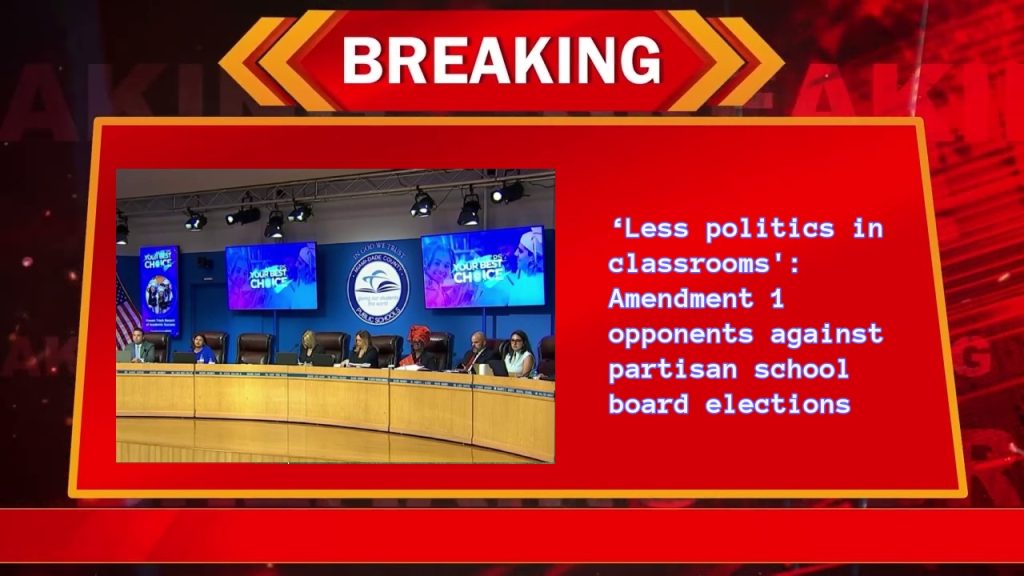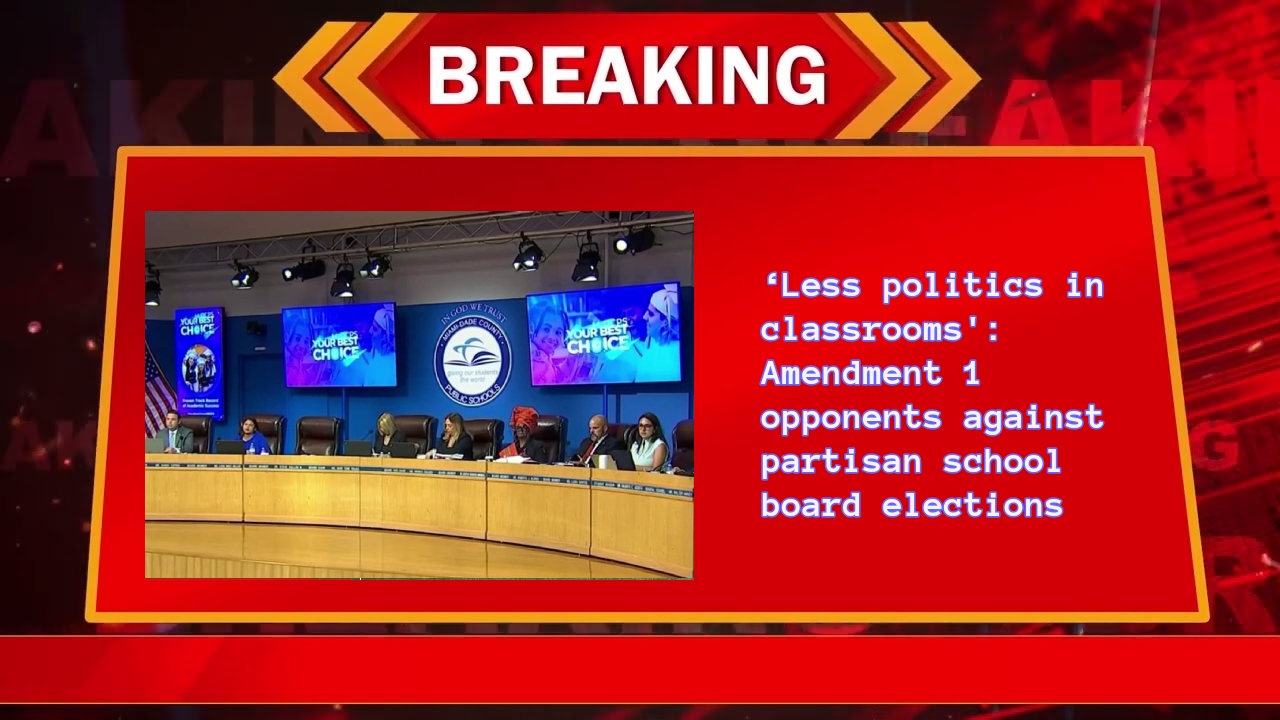NBC Universal, Inc.Florida will become one of four states with partisan school board elections if Amendment 1 is approved. The amendment’s opponents convened on Wednesday to discuss why they believe it is a poor idea to categorize school board candidates according to their political party affiliations.
Partisan school board elections are held in just four states across the US. Florida would become a member of the group if Amendment 1 is approved. The measure’s opponents demonstrated outside the Miami-Dade County School Board building on Wednesday to voice their opposition to the practice of classifying school board candidates according to their political party affiliations.
One of the event speakers, Cassandra Toussaint of People Power for Florida, stated, “School board candidates are under pressure to follow the party line when they are beholden to a political party.” “People want less politics in our classrooms, not more, and this brings more politics into our classrooms,” Santos stated.
Agendas don’t lead to solutions
“When I talk to parents, they want people who are gonna deliver solutions for their everyday problems, transportation, cafeteria food, academic outcomes, and certainly, partisan political agendas don’t lead us to being more solutions focused,” Santos stated.
Paul Christian Namphy, of an organization called the Family, stated, “We need people who do not feel pressured by a hard-core partisan political agenda to do their job and to serve the students of this state.”
Danny Espino is one of the five members of the school board that were chosen or backed by Governor Ron DeSantis. Supporting the proposal, he claims it increases openness and lets voters know exactly what they’re receiving if party membership is used to identify school board candidates.
Crystal Etienne, a social studies teacher, claims that Amendment 1 gives conflicting messages about that culture war issue. According to DeSantis ally and board member Roberto Alonso, voters can already determine a candidate’s party affiliation by looking at their positions on several subjects.
“If the voters decide that they want to keep the process the way it currently occurs, I think there’s nothing that will be of damage there or cause harm to our district,” Alonso stated.
Another consideration, according to the amendment’s opponents, is that if Amendment 1 is approved, independent voters—those who are not affiliated with either party—would not be permitted to cast ballots in school board primary elections. This translates to around one-third of Florida voters not having full voting rights when it comes to selecting the members of their local school boards.


